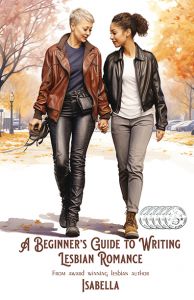The Pitfalls of Stereotypes in Writing: Laziness, Harm, and Weakness
by Isabella
Stereotypes in writing have long been criticized for their negative impact on literature, storytelling, and society as a whole.
The Problem with Stereotypes
One of the primary reasons stereotypes are discouraged in writing is because they are associated with laziness. When authors use stereotypes, they skip the essential work of developing characters and building worlds. Instead of creating unique, multidimensional characters, they rely on preconceived notions and generalizations.
Think about the common portrayal of a "damsel in distress" or the "brilliant but socially inept scientist." These clichés require little effort in character development. Authors use them because they are familiar and require minimal creativity. However, this approach deprives readers of rich, complex characters that make literature engaging.
The Harmful Impact
Stereotypes aren't just lazy; they are also harmful. They reinforce biases and contribute to negative stereotypes in society. When certain groups are consistently depicted using stereotypes, it can lead to real-world discrimination and prejudice.
For example, portraying racial or ethnic groups using clichéd stereotypes can promote racial bias and perpetuate harmful biases in readers' minds. Similarly, gender stereotypes can limit opportunities and perpetuate unrealistic expectations.
In essence, when writers use stereotypes, they aren't just taking the easy way out; they are actively contributing to harm and discrimination in society.
A Sign of Weak Writing
Furthermore, relying on stereotypes is a clear sign of weak writing. Strong writing engages, challenges, and stimulates thought. Stereotypes do none of these things. They fail to engage readers on a meaningful level because the characters and situations presented are often one-dimensional and predictable.
Weak writing is also evident in the lack of originality associated with stereotypes. Literature thrives when it explores new ideas, perspectives, and experiences. Stereotypes, by their very nature, stifle creativity and limit the potential for unique storytelling.
Breaking Free from Stereotypes
To be a skilled and conscientious writer, it's essential to break free from stereotypes. Instead of resorting to tired tropes, invest time in fully developing your characters. Give them depth, complexity, and individuality. Challenge yourself to portray people and situations in ways that defy expectations and broaden readers' horizons.
Research and understand the backgrounds, cultures, and experiences of your characters. Avoid making assumptions based on stereotypes, and instead, aim for authenticity and representation. Encourage diversity in your writing, and embrace the opportunity to highlight voices and perspectives often marginalized.
As you can see, stereotypes in writing are not only a sign of laziness but also a reflection of the harm they can perpetuate in society and the weakness they reveal in a writer's craft. To be a responsible and skilled writer, one must reject the use of stereotypes and embrace the richness and complexity of the human experience through thoughtful and inclusive storytelling.
Isabella is an award winning author. Writing everything from paranormal, mystery to her newest book coming out Feb 1st, 2024, A Beginner's Guide to Writing Lesbian Romance. Check it out here.


